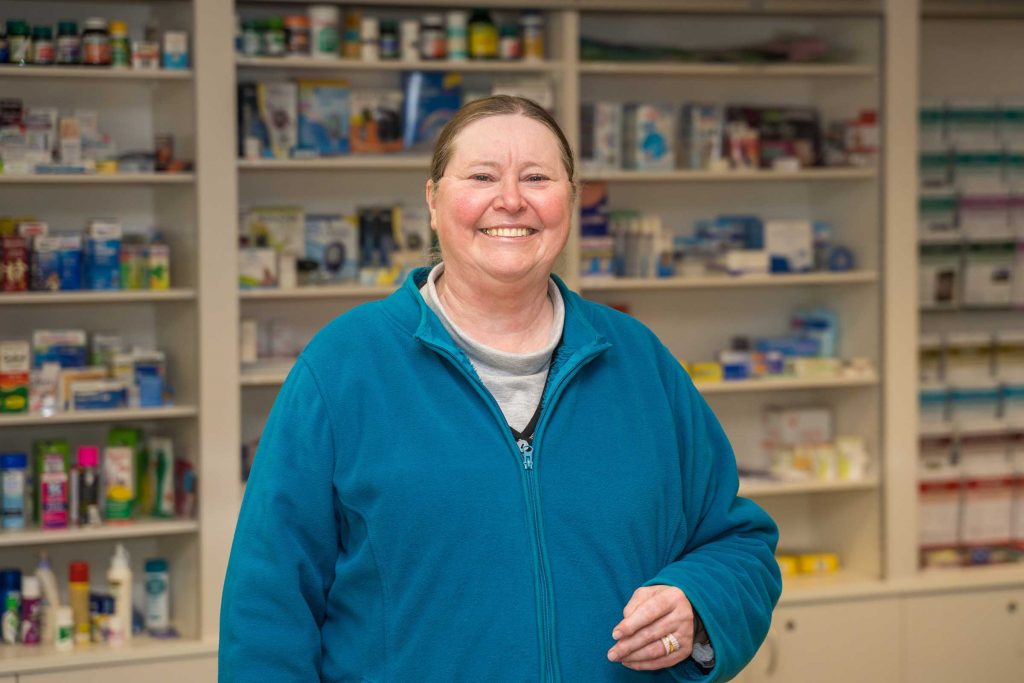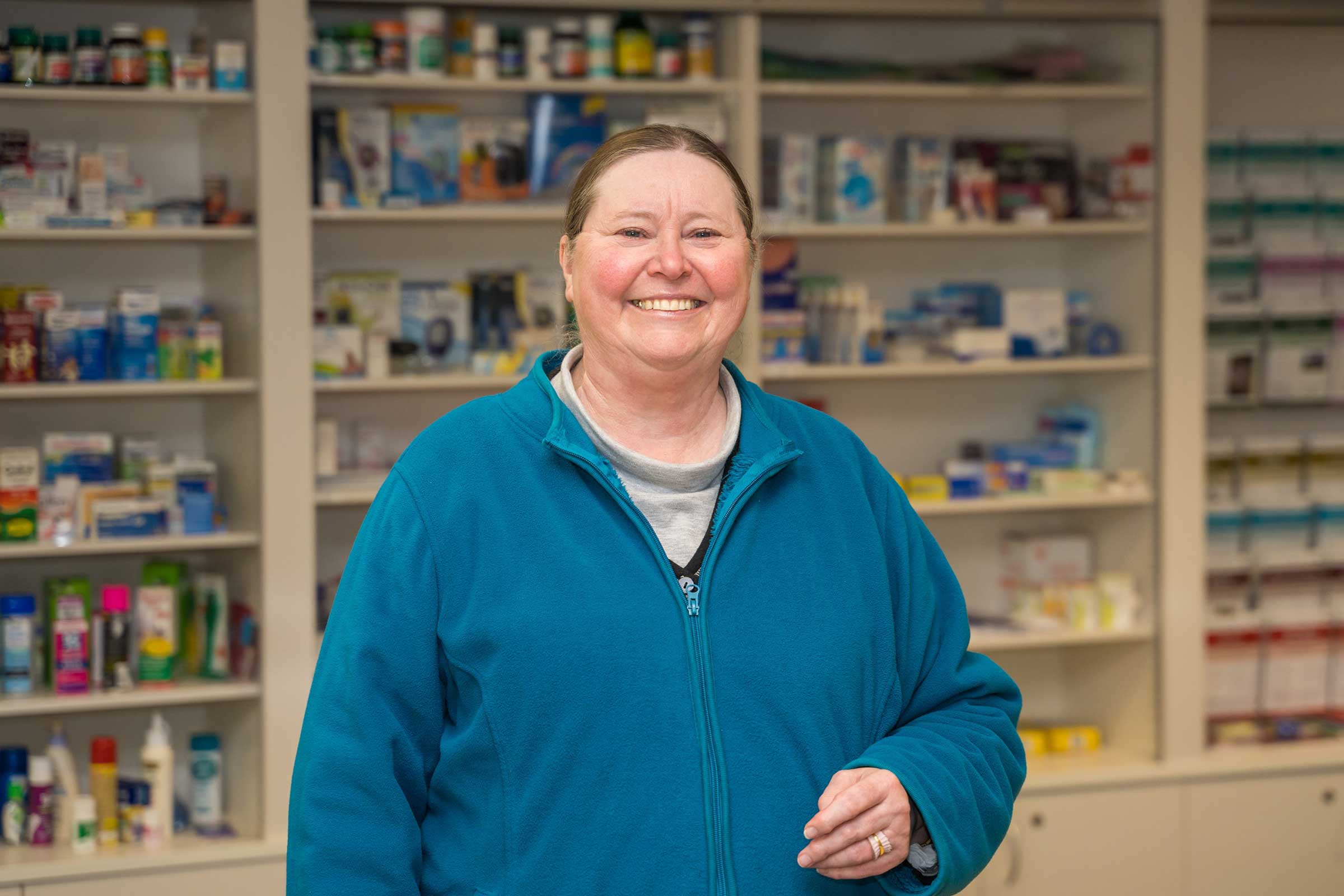
Did you know Australia has a national immunisation program? It provides vaccinations against 16 diseases, including measles, diphtheria and whooping cough. However, there is no federal mandate that makes vaccination compulsory.
While almost 95 per cent of Australian children are vaccinated, that still leaves a significant number who are not. That means they could be more susceptible to disease and, potentially, place others at risk.
So should vaccinations be compulsory? Is vaccination an area where ‘the greater good’ should outweigh personal choice? Or is it more complicated than that? We talked to Associate Professor Maree Donna Simpson, Discipline Leader in Pharmacy and Health Studies at Charles Sturt University, to dig a little deeper into these questions.
What’s the current state of play for vaccination in Australia?
“We do have a national immunisation program for children, and, increasingly, children aren’t allowed into childcare, playgroups, and so on without being vaccinated. However, that’s not a universal legal mandate, and it varies between states.
“For instance, under the No Jab No Play policy, in New South Wales in order to attend child care, children must be fully immunised, or on an approved vaccination catch-up program, or have a medical reason not to be vaccinated. In Tasmania children do not need to be immunised to attend child care services.
“For adults, there are legal requirements to gain access to certain facilities. For example, our students need to get certain vaccinations in order to go on work placements across health services in New South Wales. It provides protection for the student, as they are going into an environment with sick people, some of whom may have a contagious disease. But it’s also to protect the people they may come into contact with – those who have a depressed immune system, or who have just had surgery, or who have open wounds. Vaccination is a two-way street.”
Are there risks associated with vaccination?
“Any drug has side effects. They depend on genetic background, so I may be a quick or a slow metaboliser of a medicine, for example. I might have a different reaction to a tablet than you do, purely based on my physiology. We may all look alike, but we do differ.
“So yes, there are side effects to vaccinations. But the level and extent of any potential side effect is much less than the potential harm that can be caused by the disease.
“Take diphtheria. Up to 1 in 7 patients who contract it die. Or meningitis. One in twenty patients die and about a quarter of survivors have permanent brain or nerve damage.
“All vaccines are regulated by the Therapeutic Goods Administration. And they have several tests, so that the risk of side effects is minimised, and that even if someone does experience a side effect, they are most likely to be able to see it off. Given all that testing, if someone does suffer a severe side effect, the likelihood is that, due to their physiology, they would not have been able to see off the disease itself, if they had caught it from being unvaccinated.”
Why is ‘anti-vax’ more prevalent – at least in the media?
“In terms of media stories around vaccinations causing diseases like autism, there is no scientific evidence that that is the case. Indeed, in 2019, the results of a study conducted by the Statens Serum Institut that, over 20 years, researched children, concluded that there is no link between the MMR (measles, mumps and rubella) vaccine and cases of autism.
“There are also other claims that gain currency, such as that disease has declined due to sanitation and better nutrition, so vaccination is no longer required. It is certainly true that if you feed someone better and they have a cleaner environment, disease rates will go down. But if you combine that with vaccinations, the decline in disease is so much sharper, meaning vaccination plays a key role in reducing disease.
“So where do these ideas take hold? One thing I think has an influence is that opinions on social media are everywhere, and not all opinions are based on evidence. People are now more willing to listen to someone saying ‘I did this and I found this’, and that being the sole ‘evidence’ for their claim. People use that ‘sample of one’ as a reason to do something – or not do it, as in the case of vaccination. The way that we make decisions seems to be changing. Our time jealousy, combined with the access to an enormity of information – some of it quality, some of it not – means that people often go for an easy decision. It’s the notion that ‘if it’s on the internet it must be true’.
“But, the best information is out there. You just have to look for it. If we are to live in a society that values freedom of choice, we each have to take responsibility to make informed choices.”
Should vaccinations be compulsory – morally?
“I am a utilitarian. Jeremy Bentham is my hero. But it is difficult to answer if vaccination should be compulsory to ensure the greatest happiness for the greatest number.
“Governments are trying to balance community service and safety with personal choice. We have our personal moral decisions but also legally enshrined professional practice consideration. A part of our codes of ethics as pharmacists, for instance, is that we have to put the patients’ needs first.
“I support the availability of vaccination, but I certainly struggle with the idea of governments making health professionals get vaccinated for influenza, as an example. There are also situations where someone getting vaccinated with a live vaccine is not feasible. For instance, if someone has rheumatoid arthritis, multiple sclerosis or other autoimmune conditions, they may still work in healthcare, but they will often be taking immune-suppressants, perhaps steroids, and so perhaps can’t be vaccinated at that time. I can see both sides of the argument.”
What would you like to see in terms of vaccination going forward?
“I don’t see law as the answer. What I’d like to see is good quality information freely available, and as a result people being open to consider vaccination, before they make decisions, particularly decisions for their children. When you look at the death rate for diphtheria and whooping cough – those children haven’t had a say. Decisions you make as an adult not to vaccinate your child could cause that child to die.
“There are some diseases where I would prefer people get vaccinated. I’ve lived long enough to see people with polio and tetanus, and they are not pleasant diseases. However, I would prefer to educate people so they want to choose vaccination because they truly understand the risks of not doing so.”
Make your difference
Do you want to contribute to eradicating disease? To ensuring people are informed, protected and treated? Then a career in pharmacy (or other areas of allied health) could be for you. Talk to our friendly advisers to go through your options.


You must be logged in to post a comment.